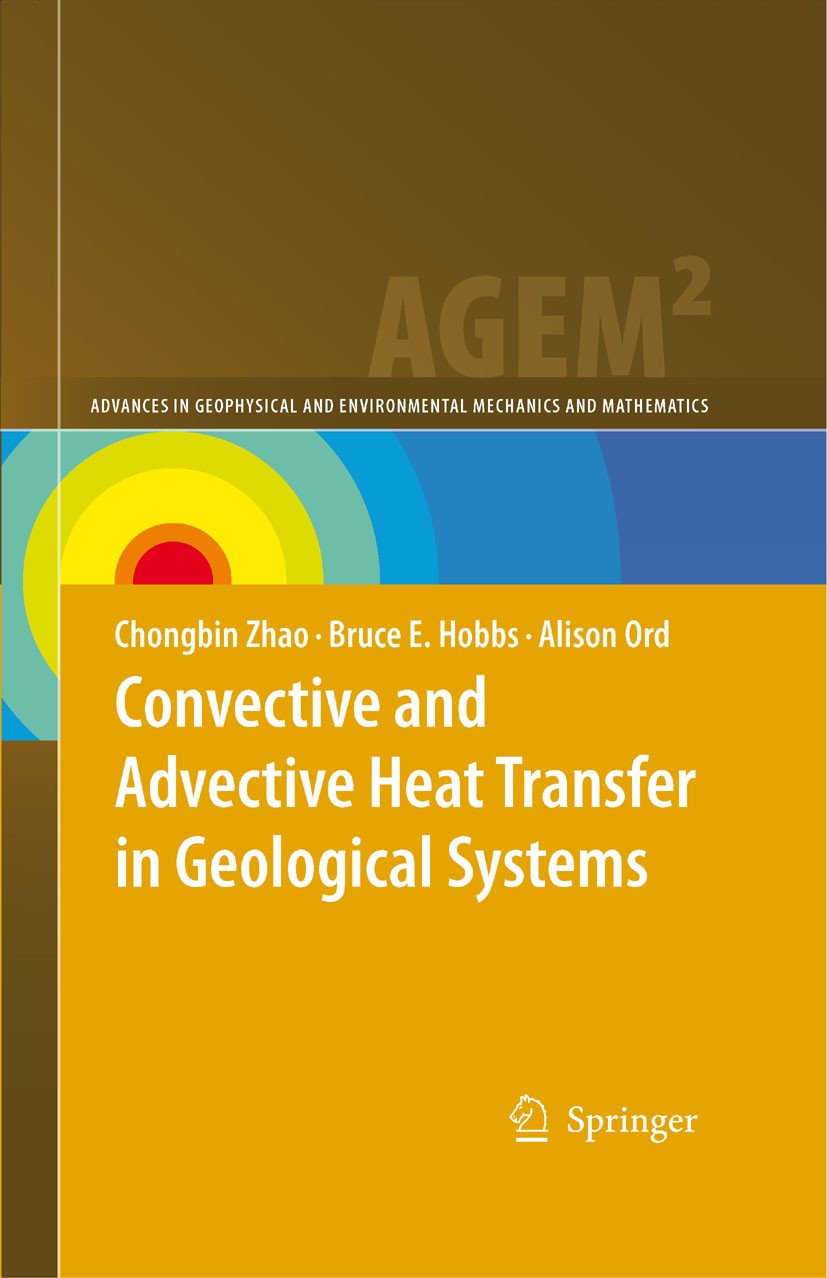Newly released
This book is new and will be uploaded as soon as it becomes available to us and if we secure the necessary publishing rights.

Convective and Advective Heat Transfer in Geological Systems Book PDF
(0)
Author:
Alison OrdNumber Of Reads:
64
Language:
English
Category:
Natural ScienceSection:
Pages:
234
Quality:
excellent
Views:
756
Quate
Review
Save
Share
Book Description
The study of heat transfer mechanisms in hydrothermal systems is important for understanding the basic physics behind orebody formation and mineralization in the upper crust (Bickle and Mckenzie 1987; Bjorlykke et al. 1988; Brady 1988; England and Thompson 1989; Hoisch 1991; Connolly 1997). Generally, heat energy may be transferred within the crust in the following forms: conduction, advection (including forced convection) where the heat is carried by a moving mass of rock during def- mation or by a moving uid, convection (i. e., free convection, natural convection, buoyancy driven convection, temperature gradient driven convection) and a com- nation of these processes. Since advective ow is usually generated by a pore- uid pressure gradient, heat transfer due to advective ow is largely dependent on the pore- uid pressure gradient distribution in hydrothermal systems. A typical ex- ple of this advective ow is the upward through ow caused by lithostatic pore- uid pressure gradients within the lower crust.
Alison Ord
Alison received a BSc in geology from the University of Edinburgh in 1977 and a PhD from the University of California at Los Angeles in 1981. Since then she has been a researcher at Monash University, at the Commonwealth Scientific and Industrial Research Organisation, Australia, and most recently at the University of Western Australia.
Alison’s research is in structural geology, the mechanics of hydrothermal systems, computer modelling of coupled deforming systems with heat and fluid transport and the thermodynamics of chaotic systems. Her interests are in applying the tools developed for nonlinear dynamical systems, particularly multifractal analysis and recurrence plots, to large data sets on alteration assemblages, deformation and mineralisation in mineralising systems in order to quantify and fingerprint various classes of hydrothermal mineralising systems. Her goal is to develop a new paradigm for mineral exploration based on nonlinear dynamics.
Book Currently Unavailable
This book is currently unavailable for publication. We obtained it under a Creative Commons license, but the author or publisher has not granted permission to publish it.
Rate Now
5 Stars
4 Stars
3 Stars
2 Stars
1 Stars
Convective and Advective Heat Transfer in Geological Systems Quotes
Top Rated
Latest
Quate
Be the first to leave a quote and earn 10 points
instead of 3
Comments
Be the first to leave a comment and earn 5 points
instead of 3